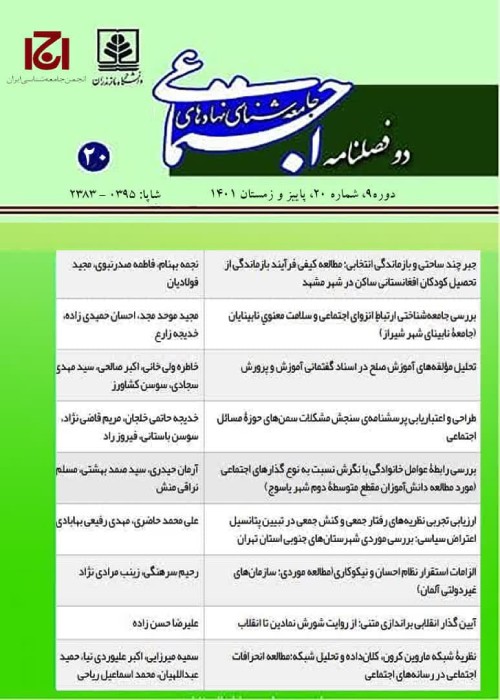Knowledge Cities, Academic Cities and Spatial Planning
The advent of modern knowledge cities is the consequence of formation of knowledge-centered society and knowledge-based economy. The appearance of these centers, on the one hand, results from convergence of theories of knowledge-based development, knowledge management and urban studies. On the other hand, knowledge city is the result of the reconciliation between economic welfare and social values; a place where intellectual capital, social capital, human capital, as well as financial and physical capitals are strongly connected and influence each other; an efficient place in attracting, retaining and growing brains. The formation of knowledge cities is mainly started from components with geographical origins and directly related to the subject of land-use planning. Knowledge cities are in need of strategic plans, development plans and future studies more than other human societies. Hence, they require multiple-dimension attention to regional planning. This has been neglected in Iran.The main purpose of this study is to clarify what are the main considerations for the proper development of these centers, given the pillars and characteristics of knowledge cities and academic cities.
This qualitative comparative study is in the category of applied research in terms of purpose.
The findings show that Iran academic cities just have the first characteristic among the three characteristics (academic development, social and cultural development, communicative characteristics) of knowledge cites in practice.
The development of knowledge cities and academic cities in Iran has been the proliferation of scientific units and university centers, not the promotion and development of science norms.Even the establishment and development of these centers has not been in line with the ancient scientific tradition of Iran. Rather, the unbalanced overflow has been an unbridled social demand that has formed on its own without regard to the principles of spatial planning.The author offers eight suggestions for improving this situation at the end of the article.
- حق عضویت دریافتی صرف حمایت از نشریات عضو و نگهداری، تکمیل و توسعه مگیران میشود.
- پرداخت حق اشتراک و دانلود مقالات اجازه بازنشر آن در سایر رسانههای چاپی و دیجیتال را به کاربر نمیدهد.



